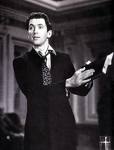 In Weintraub v. Board of Education of the City of New York, No. 07-2376 (2d Cir. Jan. 27, 2010), the Second Circuit, in a 2-1 decision, has delivered a body blow to the First Amendment speech rights of public school teachers.
In Weintraub v. Board of Education of the City of New York, No. 07-2376 (2d Cir. Jan. 27, 2010), the Second Circuit, in a 2-1 decision, has delivered a body blow to the First Amendment speech rights of public school teachers.
The case concerns a fifth-grade teacher who was dealing with a disruptive student throwing books at him on multiple occasions. When the school administrator refused to take disciplinary action against the student, the teacher filed a grievance with his union. The school allegedly responded by retaliating against the teacher and eventually, firing him. (BTW, all of this happened from 1998-2000, and the Second Circuit decision just came out in 2010; something about justice delayed is justice denied keeps popping into my head.)
The majority decision, written by Judge Walker, recites the holding of Garcetti (U.S. 2006) (the bane of my existence) that public employee speech pursuant to an employee’s official duties receives NO First Amendment protection. In Weintraub, the “speech” being examined was the grievance filed by the teacher with his union.
The Court held that the employee’s grievance was “pursuant to” his official duties because “it was ‘part and parcel of his concerns’ about his ability to ‘properly execute his duties,’ as a public school teacher — namely to maintain classroom discipline, which is an indispensable prerequisite to effective teaching and classroom learning.”

